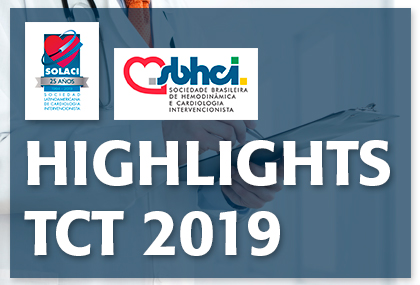Courtesy of Dr. Carlos Fava.
Unprotected left main coronary artery angioplasty with drug-eluting stents has emerged as an acceptable strategy for a select group of patients, with results comparable to those of myocardial revascularization surgery at 2 or 3 years. However, beyond such term, we had no valid information.

Researchers analyzed the 5-year follow-up results for the EXCEL trial, which randomized 948 patients with an intermediate or low SYNTAX score to undergo angioplasty with an everolimus-eluting stent (XIENCE, Abbott Vascular) while others were randomized to coronary artery revascularization surgery.
The primary endpoint at 5 years consisted of death, stroke, or infarction, while the secondary endpoint at 5 years was a composite of death, stroke, infarction, and ischemia-driven revascularization.
Groups were similar: the mean age was 66 years old, most patients were male, and 30% of subjects had diabetes. The SYNTAX score was 20.6 ± 6.2 for local sites and 26.5 ± 6.3 for core lab with angiography. About 80.5% of patients had severe bifurcation lesion in the left main coronary artery.
Read also: TCT 2019 | AUGUSTUS ACS: Apixaban vs. Warfarin and Aspirin vs. Placebo in AF and ACS.
Over 90% of patients in both groups completed the 5-year follow-up. There were no differences in the primary endpoint (22% for angioplasty and 19.2% for myocardial revascularization surgery; p = 0.13). The secondary endpoint favored myocardial revascularization surgery (24.1% vs. 31.2%; p = 0.002), driven by a higher need for ischemia-driven revascularization (16.9% vs. 10%; p > 0.001). There were no differences as regards cardiac death, infarction, or stroke. Non-cardiac death rates were higher in the angioplasty group.
Conclusion
In patients with unprotected left main coronary artery disease who had intermediate or low anatomical complexity, there were no differences between angioplasty and myocardial revascularization surgery as regards death, stroke, or infarction after a 5-year follow-up.
Courtesy of Dr. Carlos Fava.
Link to the SBHCI Publication HERE
Original Title: EXCEL: 5-Year Outcomes From a Randomized Trial of PCI vs. CABG in Patients With Left Main Coronary Artery Disease.
Author of the Original Title: Gregg W. Stone.
Get the latest scientific articles on interventional cardiologySubscribe to our weekly newsletter
We are interested in your opinion. Please, leave your comments, thoughts, questions, etc., below. They will be most welcome.





